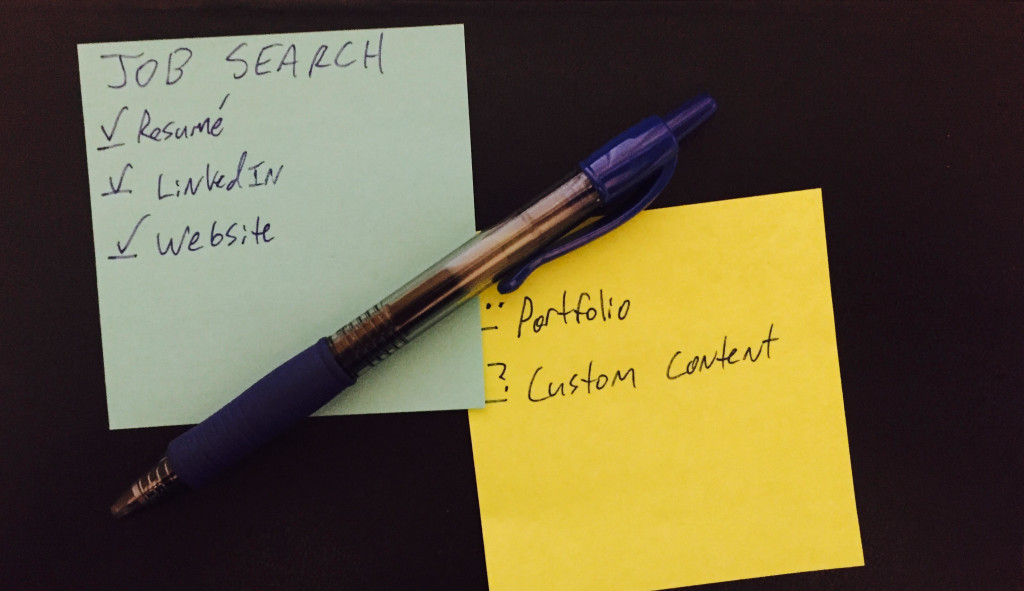
From Life Learning on Medium.
A lot of people are looking for jobs. The thing is, not all job searches are equal. “Looking for a job” might actually mean hoping someone finds your resume online, shooting out a few emails, or posting unsolicited comments on Facebook pages that say, “Are you hiring?”
If you want a job — really want a job — you’ve got to go level five with your job hunt. And call it a hunt, not a search. You’re not hoping to stumble into a pot of gold, you’re tracking your prey and bagging it.
Let’s take a look at how to do it.
Level 1: A Good Resume
While most of the best jobs you’ll get in life will be gotten without a resume, if you’re job hunting you should have one on hand. I don’t particularly like them, but a lot of people expect them. A good resume will never get you a job, but a bad resume could lose you one.
For a resume to actually convey something, serve as a starting point for interview questions, and keep you from being dismissed out of hand, there are really just two main features: Nice appearance and outcomes-based content.
For appearance, keep it simple, clean, a single page, uniform use of line breaks or bullets, not too many indents and sub-sub points, and a clear order top-to-bottom of what’s most important. (Hint: experience is more important than education to most people, even if you assume otherwise). Oh, and get your spelling and capitalization triple checked.
For content most people simply list credentials they have and activities they engaged in. This is boring and conveys a lot less about your ability to create value than what kind of outcomes you produced. Don’t just list that you were a digital marketing intern and ran email campaigns. Show that your A/B test improved open rates by 10%.
Even if you were waiting tables, see if you can demonstrate value created. “Server at Applebee’s” is less interesting than, “My section consistently brought in 15% more tips than average sections.”
Anyone can have a title and do a task. The good ones create value and can show positive outcomes.
Level 2: Good Profiles on LinkedIn, etc.
Whether you like it or not, LinkedIn is hugely valuable in the working world, especially for those making hiring decisions. Have a profile. Have a decent headshot that actually looks like you. Have accurate information. Keep it up to date.
Your LinkedIn profile should be consistent with your resume, but it is not the same thing. It allows you to go a little deeper into who you are, what drives you, who you’ve worked with, what you did, etc. Same goes for Twitter, Facebook, and whatever else you kids are using these days. Be you, but use good judgement. If someone only ever found your online accounts, would they have an accurate idea of who you are and what you want to be known as?
Many people fear all social media and online presence because they think of it as a liability. Some people try to stay undiscoverable online as a protective measure. This is a terrible idea. First, always assume if some hacker wants to find your stuff bad enough they’ll find a way, regardless of your settings. But more importantly, seeing social media as a liability blinds you to the fact that it can be a huge asset. There is no neutral. It’s either helping you or hurting you. Being completely anonymous online hurts you. Take charge of your online presence and make it an asset.
Level 3: A Personal Website
It’s easier than ever to setup a personal website. If you’re serious about finding a great job, just do it. Go over to WordPress and get started. In a few hours you can have a clean, simple website that serves as a repository of all the things you enjoy and want to be known for.
A personal website gives you far more control than profiles on third party sites. You can feature whatever you wish, you can blog, share video, include a longer bio, express aspects of yourself you wouldn’t cram into a LinkedIn profile, and really use the blank canvas to create whatever you wish.
But more than what you have on your site is the fact that you have one. Anyone who has put together a basic, neat, up to date personal website stands out. Not many people do, despite how easy it is, and if you do you’ll have something that gives you far more cred than just a decent resume in a pile.
If you really want to gain an edge, overcome fear, build confidence, and become a better communicator and thinker then take the next step and blog on your site regularly. I recommend blogging daily, but if that’s daunting, try weekly. You can always hide bad posts, but the act of doing it and knowing it can be seen by others will do more for your creative capacity and productive power than any other simple activity I know of.
Level 4: A Portfolio of Projects
If you’ve already setup your personal website here’s a way to really beef up the value. Beyond a nice homepage and about page with a bio your website can feature projects you’ve completed.
Remember when I said the resume should show outcomes instead of just telling about activities? A portfolio allows you to show in much greater detail what you’ve created. It’s especially easy for those with skills in art or coding or engineering to share publicly what you’ve produced. You may think that your management or communication or sales skills can’t really be put into a portfolio that shows what you’ve done, but it can.
Go to a freelancer website and pay someone $50 to design a nice one-pager that shows the results of that event your organized and executed. Have someone build an interactive graph tracking your fundraising or sales campaign. Show articles you’ve written and clicks they received.
If you can think of nothing tangible that you’ve completed to put in a portfolio it’s a good sign you should get cracking! Writers and photographers know that their portfolio of work is what really matters. If they have none, they start out just doing things for free to build it up. You can do the same. Just get started creating something and share the results. Do projects for free that will help you get something under your belt.
The great thing is, the success or failure of your projects is less important at this stage than that you completed it. I’ve talked with tech companies who say they’d rather hire someone who built a cheesy, non-innovative notepad app than someone with a stellar resume who never built and “shipped” anything at all.
Level 5: Unique, Stand-Alone Websites, Videos, InfoGraphics for Your Target Company
Here’s where the great stand apart from the very good. If you really, truly, deeply want to work for a company why not devote yourself to studying them in depth and presenting your unique take?
Remember Nina, whose resume was lost in the heap at AirBnB? She went level five and became internet famous. She put together an impressive site that deserved attention, still it’s telling of just how low the bar is among job-seekers that a simple website was such a viral sensation. No one is doing this. But you can.
One thing employers will tell you when sifting through job applications is that too many people talk about themselves and too few talk about the company they claim to want to work for. “I’m Joe and I’m great at XYZ” tells me nothing about why Joe applied specifically for my company. Does he just want a paycheck, or is he passionate about my business? Does he even know what we do and what we value?
There’s no better way to demonstrate your knowledge and passion for a company than to dig into the industry, business model, customer base, competitors, and build something unique that describes what you love about and what you would do for the company. Don’t think about what would make you look good, think about what would actually be valuable to the company.
I guarantee spending 30 days doing a deep dive on your target company will be more valuable than spending an entire year getting a second major and more clubs to list on your resume. If you can create something of value to the company before you’re even working for them that sends a strong signal that you’re a person they want on board.
What Are You Waiting For?
One of the reasons I launched my company Praxis is precisely because so few young people realize that they have the power to create their own professional future. There are more tools available than ever and more opportunities but so few realize it. You can’t sit on the conveyor belt and expect it to drop you at a fulfilling job.
Look, I’m not saying it’s easy. But don’t tell me there’s no way to get a great job if you aren’t willing to push yourself to level four, or ideally level five. You can probably think of ten more things I didn’t even list here if you really try.
The days of buying a degree and hoping it buys you a job are over. Be your own credential and prove through the work you do that you can create value.
Like this:
Like Loading...



